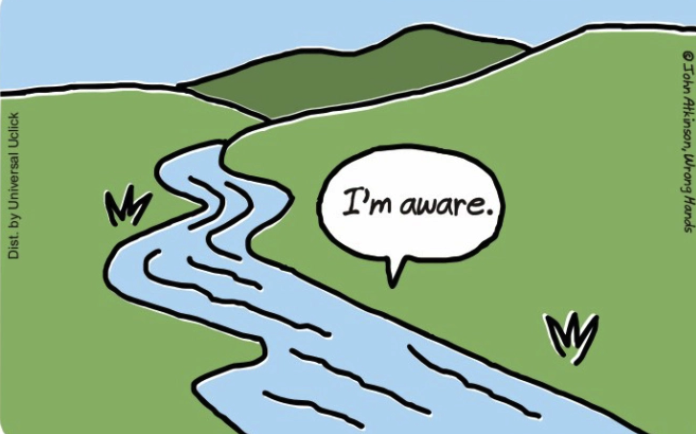If you’re not watching Community, you’re being foolish. While I normally talk about movies in my column, I feel this issue is important enough that I have to address it publicly. Simply put, this show is the funniest, most creative show on television. More alarmingly, if you don’t watch now, you could miss it completely.
When Community first aired in 2009, the first several episodes resembled many other sitcoms on network television. The plot follows a gang of misfits who form a Spanish study group while attending Greendale Community College. The setting of a community college lent itself to quirky plotlines and interesting characters that seemed fresh and new. It was witty and well written, but nothing about it was truly unique; however, by the middle of the first season, the writers hit their stride and the show evolved into what it is today. The episodes quickly left behind the tired story arcs we’ve come to expect from a sitcom. It would be exceedingly difficult to describe exactly what makes Community so great because it is so varied. The show is extremely character driven, a quality that is amplified by the acting and comedic talents of Donald Glover, former writer for 30 Rock, and Joel McHale of The Soup. Much of the humor is also derived from frequent pop culture references and homages, many of which are central to the plot. These gags range from quick bits where characters imitate Sesame Street’s Bert and Ernie, to a Christmas episode made entirely with Claymation. The frequent references are so diverse that they ensure any audience member can find something in the show to relate to.
There is energy to Community that many shows lack. Often, sitcoms seem to occur in a vacuum, completely detached from the current events of the real world; however, some of the best television programs in the last decade have been the exceptions to this rule. Community is so integrated with the real world, that it’s almost become interactive. They address current Internet memes, clichés among sitcoms, as well as shows they compete with for viewership like Glee. They even interact with the audience; when someone tweeted at creator Dan Harmon that Glee was “streets ahead” of Community, Harmon found the phrase so bizarre that he included it prominently in an episode within two weeks. Comparing Community to any other show is difficult, but the most apt comparison would be Fox’s unjustly cancelled Arrested Development. The show was driven by its wacky characters and had a biting satire of current events. The combination created the same sense of relevance that Community now enjoys, and that has been present at times in shows like The Office, 30 Rock, and the early days of The Simpsons.
All these positives, however, come with a relatively major drawback. The ratings for Community, much like those of Arrested Development have been lackluster since it’s beginning. For some indiscernable reason, networks still think this is an indicator of a program’s value, though many people now watch television online, or through digital recording. Though both shows have been drastically under-publicized, the problem stems from the subject matter itself. Both shows were weird, smart and subversive; in short, they were everything that mainstream TV audiences can’t easily understand or enjoy. They require thought and reward repeated viewership with jokes that build on themselves from episode to episode, and the zany elements of both shows have alienated the casual fan. In the case of Arrested Development, the low ratings led to cancellation after only three seasons. Community’s fourth season began two weeks ago and it may meet a similar fate.
I will end this with an appeal to each reader. Please, if you have not seen an episode of Community, give it a chance. After three or four episodes, you’ll see why its small viewership is so fanatic about it. For those of you who do watch Community, I’ll offer you this reassurance about the future of NBC’s best show: Don’t get Changry. Everything’s going to be fyne.


